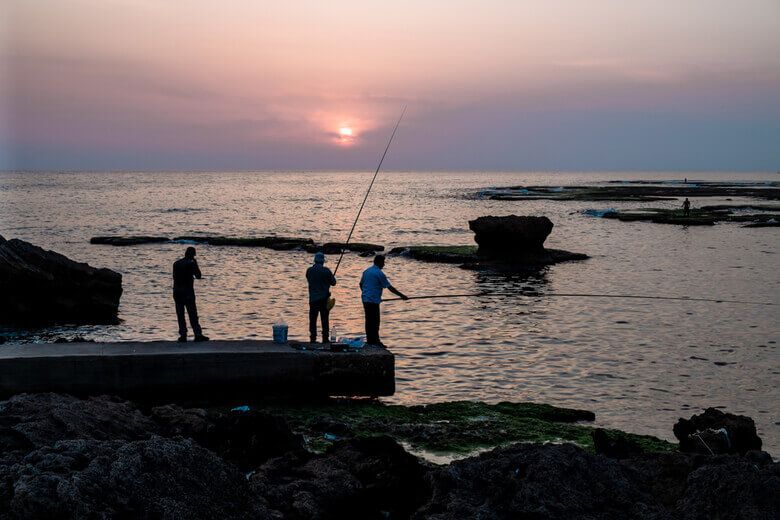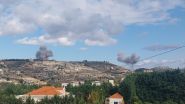
"We used to feed our children with fishing; if we can't go out, we can't eat," a fisherman told AFP, noting that "300 or 400 families" depend on fishing in the area.
At the port of Saida, the boats are docked, and the fish market is unusually quiet. Since the Israeli Army ordered the evacuation of nearly 60 kilometers of coastline in southern Lebanon, fishermen are worried about their livelihoods.
Three testimonies collected by AFP express the fishermen's anxiety regarding the Israeli Army's order prohibiting residents from going to the beaches or fishing in southern Lebanon, near the Israeli border.
"The Fish Market Will Soon Close"
"Yesterday at 9 PM, we were officially informed by the Lebanese Army that it is prohibited to go out to sea, and we are respecting this order," explained Mohammed Bidaoui, from the fishermen's union in Saida, on the Mediterranean.
"If this continues, the fish market will soon close," he worries, walking through the nearly deserted market.
On Monday night, the Israeli Army, now in open conflict with Lebanon, announced it would "soon target the terrorist activities of Hezbollah in the coastal area" of southern Lebanon, which stretches about 60 kilometers.
"300 or 400 Families Depend on Fishing"
Issam Habouch sadly watches the boats gently rocking on the water, in a calm sea where no nets have been cast since morning. This fisherman, stuck on dry land, is concerned for his family.
"We used to feed our children with fishing. If we can't go out, we can't eat," he told AFP, emphasizing that "300 or 400 families live off fishing" in the vicinity.
For Bidaoui, this represents "5,000 to 6,000 people" who find themselves "in a difficult situation." "We need to help the fishermen and the merchants at the fish market," he urges.
"Depressed"
Around him, other fishermen nod in agreement. "We are like the displaced from the rest of the country," says one of them, Hamza Sonboul. They all demand assistance to continue surviving in a country where, according to the World Bank, the poverty rate has tripled to 44% over the past decade.
Marwan Hariri, a 47-year-old snorkeling instructor, has his small training boat docked at the fishing port. "Since yesterday, I have felt really depressed; I haven’t even opened my school," he confides to AFP.
He has lost 70% of his students, most of whom come from southern regions of the country, where cross-border bombings between the Islamist movement Hezbollah and Israel began a year ago, escalating into open conflict at the end of September.



Comments